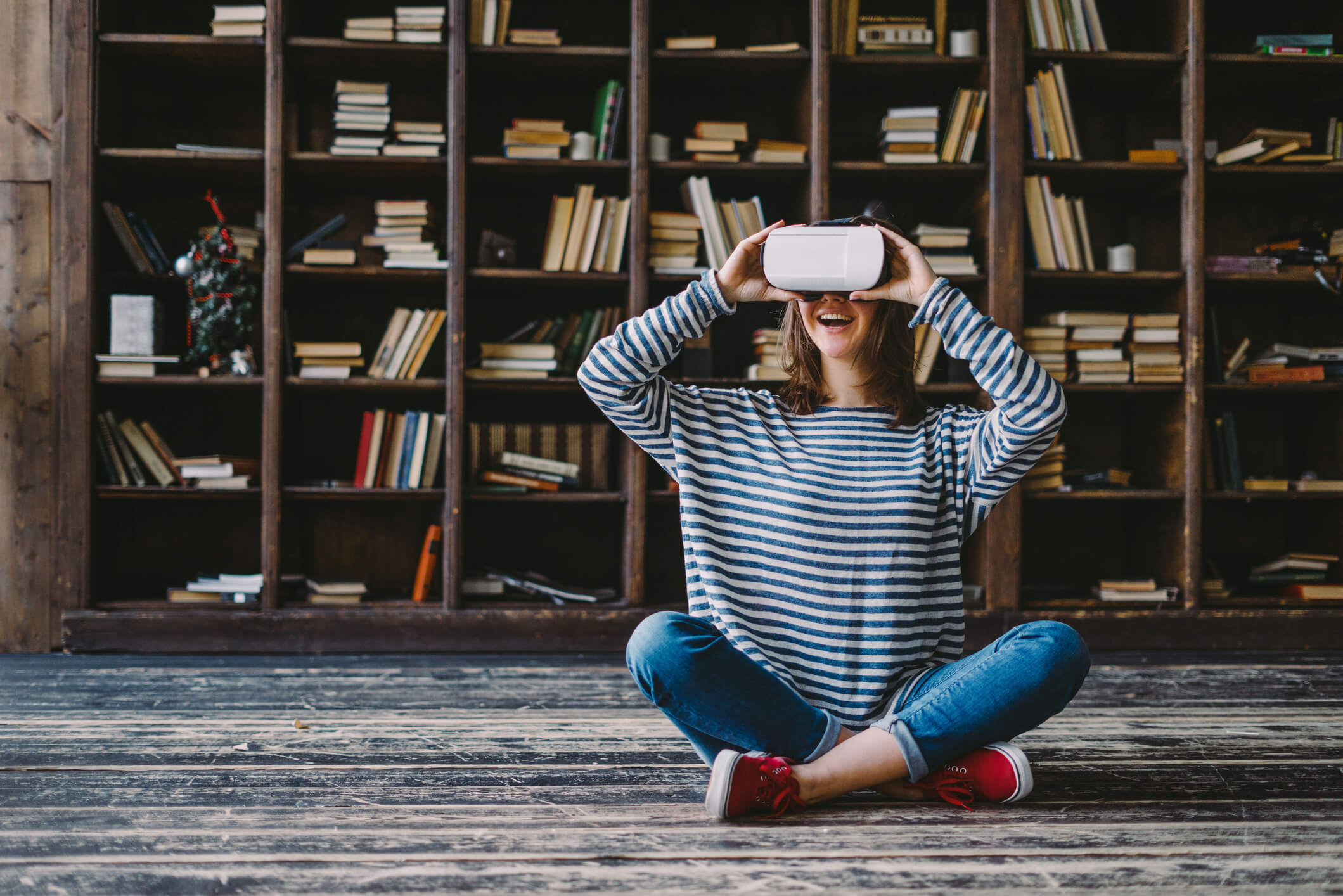Reading in 2123: a limitless experience
In the beginning were clay tablets: the first reading medium used by mankind thousands of years ago. Then came papyrus, common in ancient Egypt and other Middle Eastern civilizations, and scrolls, widespread in antiquity and the Middle Ages. Finally, came paper, initiated to the world by the Chinese Empire around the second century CE. Since then, for nearly two millennia, reading has known primarily this medium: not even digital devices have undermined the appeal of paper.
But in 100 years, will reading still mean flipping through pages and pages of words fixed on cellulose? Will it really be necessary to buy a book every time one wants to read one? Will doing so always mean pulling down trees from which to get the paper needed for printing? Let’s find out together in the first of a series of content inspired by Roma 2123, an exhibition hosted by Galleria Alberto Sordi and dedicated to how Artificial Intelligence has imagined the Eternal City of the future.
E-ink will revolutionize everything
Let’s start with the last question: fortunately not, in 2123 new environmentally friendly and sustainable materials will have replaced those we are used to, saving innocent forests. For example, paper will be made from pulp obtained from renewable sources such as algae or plant biomass.
But the books will, in fact, be books-of-fiction: part paper, part digital. The pages will, in fact, be covered with extremely thin, flexible screens on which high-definition electronic ink will be applied. The latter will combine the visual quality of printed paper with the interactivity of digital devices, raising it to full power.
Indeed, it will be to his credit if in 2123 immersing oneself in a novel will be a completely multisensory experience, as well as an absolutely sustainable one. Indeed, electronic ink will make it possible to reproduce sounds and noises, but most importantly, it will also engage the only sense that cannot be digitally stimulated today: the sense of smell.
The printed paper will be truly scented
Thanks to microcapsules containing aromatic substances embedded in the ink itself, the reader of 2123 will be able to smell specific scents in sync with the reading-a ticket to a universe of literary smells, a revolution that will emotionally connect reader and storyteller.
For example, the famous passage of madeleines in Proust’s In Search of Lost Time will become an immersive olfactory journey, as the aroma of the sweets baked every Sunday by Aunt Léonie will be felt while reading… Beautiful, isn’t it? But there’s more! Electronic ink will also allow for infinite reuse of the reading medium: after reading a book, one can simply reset the text and move on to a new literary adventure.
With electronic ink and an Internet connection, it will only take a click to download new books from an online platform again and again, which can be overwritten directly on the paper-digital medium. Thus, environmental impact will be reduced, while the joy of reading will increase. Goodbye paper waste and deforestation, welcome sustainable and limitless reading!
From reader to viewer of history
Practically in 2123, one will be able to have an infinite library with him or her. And the reading experience will also be personalized thanks to the implementation of artificial intelligence and data analysis. Indeed, the books of the future will adapt to individual tastes and preferences: each reader will have access to a wide range of tailor-made details. Shapes, colors, sounds, smells, texture of materials: everything will be customizable.
Yes, even the texture of the materials, because the real revolution will happen through virtual reality and augmented reality. With a simple visor and gloves with sensors, readers will be able to immerse themselves in the plots of the books, experiencing the adventures of the characters in a hyper-realistic way. One will be able to see and touch the objects described in the book, vividly witnessing the scenes imagined by the author. In short, the word “interactivity” in 2123 will have a whole new meaning!
Reading has always been an act of beauty, a door that opens to endless horizons. It was that way with clay tablets; it was that way with papyri; it was that way with scrolls; it was that way with manuscripts; it is that way on paper and digital devices; it will be even more that way 100 years from now, when opening a book will initiate an extraordinary experience.
30 May


latest news
Go to the Archive
